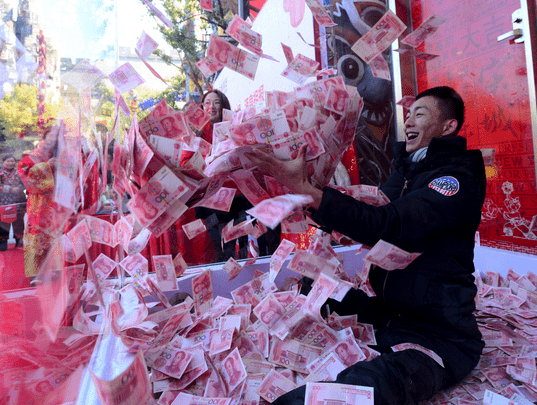
So far this year there have been 82 Chinese outbound deals worth $73 billion, reports Dealogic, up from 55 deals valued at $6.2 billion in the same period of 2015. Chinese outbound deals broke a record last year with 607 mergers and acquisitions (M&A) valued at $112.5 billion.
This year General Electric sold its appliance business to Qingdao-based Haier, while investment firm Dalian Wanda is buying a majority stake in Hollywood’s movie studio, Legendary Entertainment. Another Chinese investment firm is buying the Chicago Stock Exchange, and ChemChina is acquiring the Swiss seeds and pesticide group Syngenta for a reported $48 billion.
“With the slowdown of the economy, Chinese corporates are increasingly looking to inorganic avenues to supplement their growth,” Vikas Seth, head of emerging markets in the investment-banking and capital-markets department at Credit Suisse, told businessinsider. “Some of the primary motivations for cross-border acquisitions are access to new markets, brands, technologies, R&D capabilities and, in some cases, to products and supply chains that can be sold into a buyer’s distribution networks within China,” Seth added.
While Wall Street investment bankers are pleased—they earned $558 million in outbound deals to China last year, and have already pocketed $121 million this year—M&A deals are subject to scrutiny by the Committee on Foreign Investment (CFIUS) in the U. S. The committee prevented the sale of Philips’ lighting business to an Asian group for $3.3 billion.
CFIUS will likely take a hard look at the potential sale of the Chicago Stock Exchange, especially since 45 members of Congress sent a letter to CFIUS asking for a complete investigation. “This proposed acquisition would be the first time a Chinese-owned, possibly state-influenced, firm maintained direct access into the $22 trillion US equity marketplace,” the letter reads. “While it is unclear the level of influence the state holds over CCEG, the firm is involved in a number of important Chinese sectors that would likely require close ties to the state.”
The housing industry is a huge part of the U. S. economy. How long might it be before the Chinese make serious acquisitions in the building sector? ##
(Photo credit: reuters–China buying foreign businesses)


























